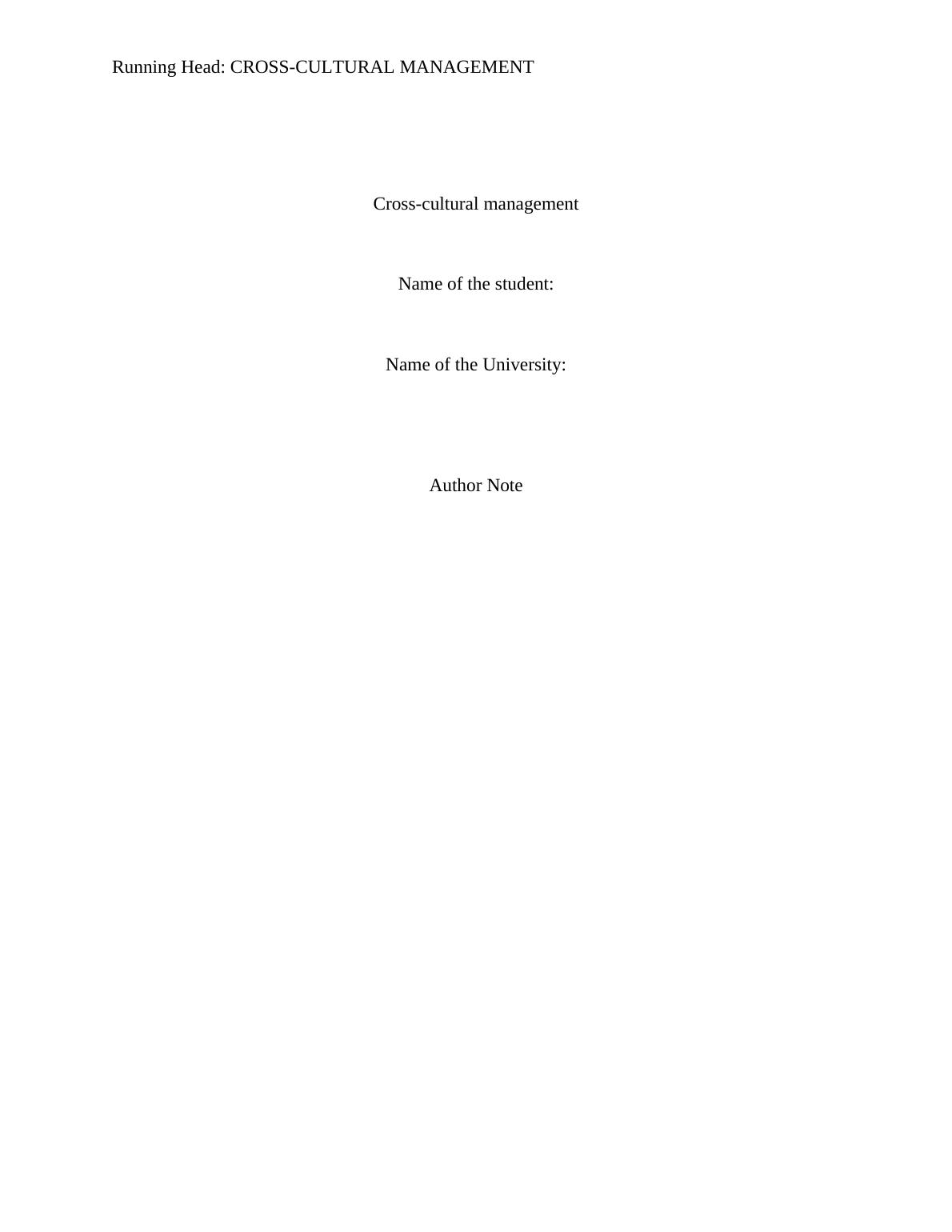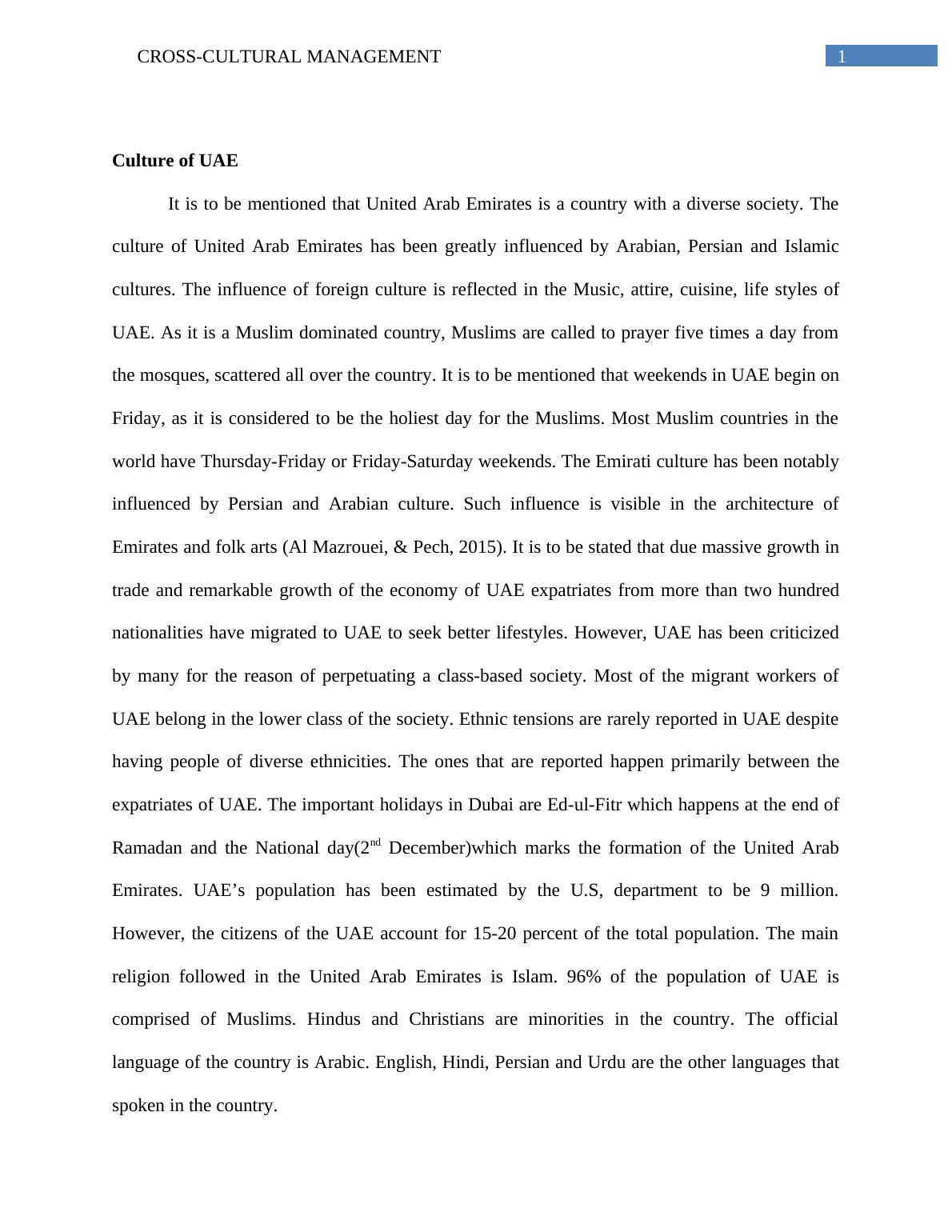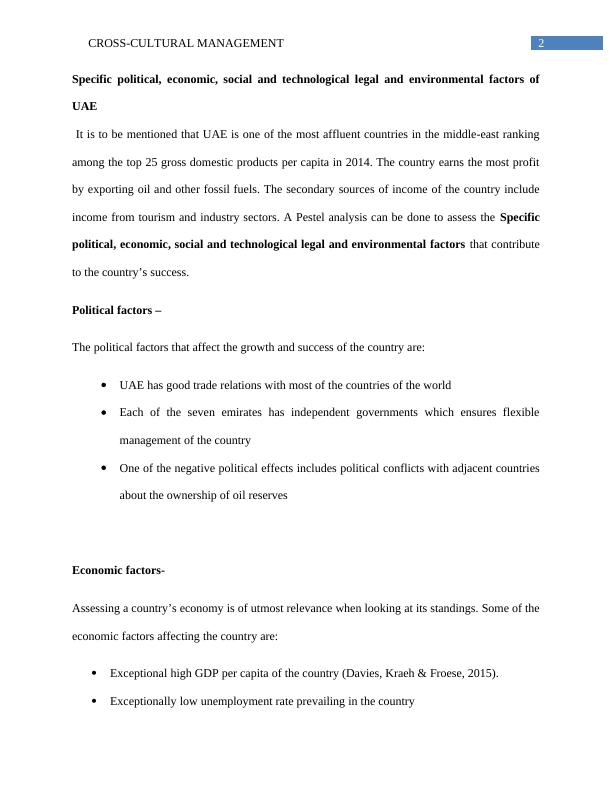Cross-Cultural Management Assignment
9 Pages2223 Words191 Views
Added on 2020-05-16
Cross-Cultural Management Assignment
Added on 2020-05-16
ShareRelated Documents
End of preview
Want to access all the pages? Upload your documents or become a member.
Cross Cultural Management: PDF
|5
|917
|84
Cultural Anthropology Assignment- Answers
|5
|858
|40
Impact of Dominant Culture on Socio-Economic Status in UAE
|6
|1257
|491
Impact of Global English on Cultural Identity of UAE
|6
|898
|260
Comparison of UAE and India: History, People, Customs, and Economy
|5
|1316
|431
Ethical Decision Making (Doc)
|7
|1410
|52



